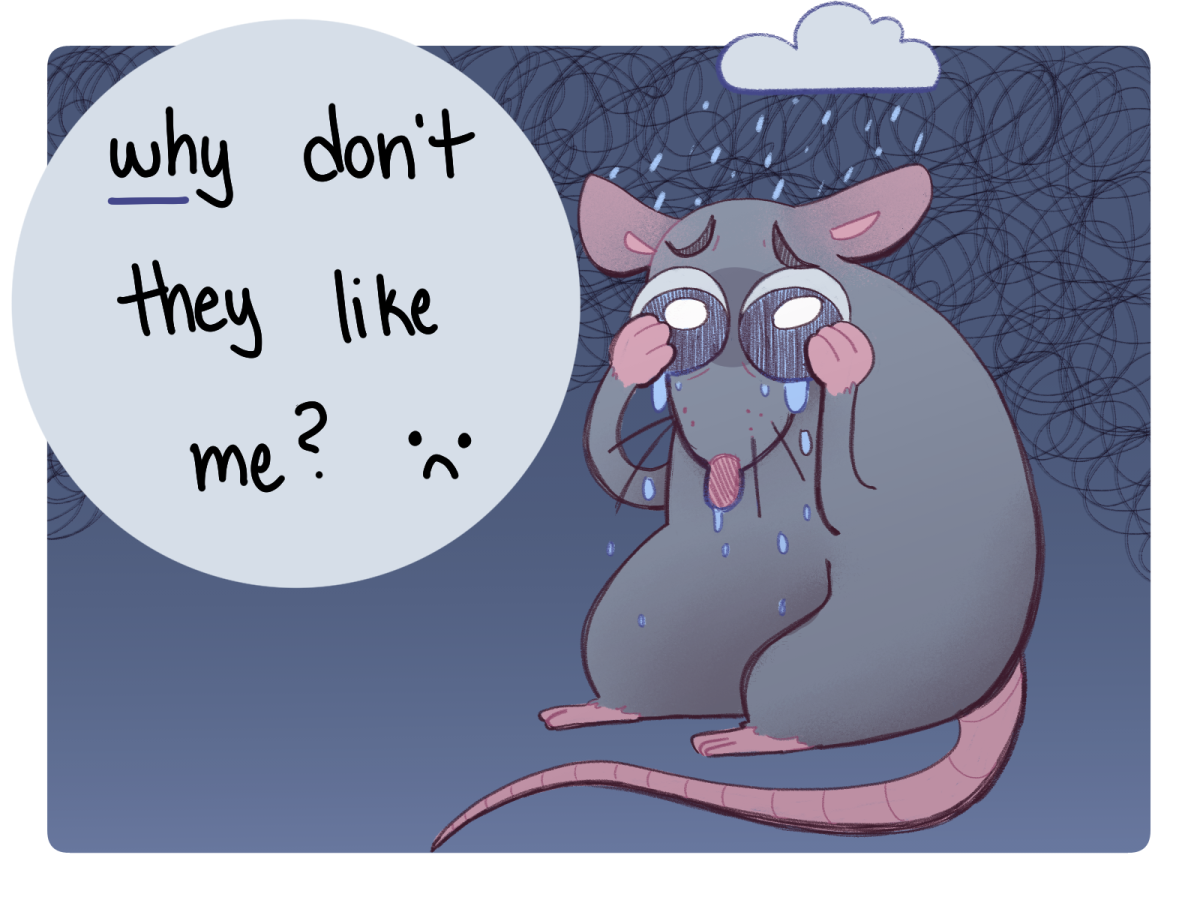Rats have empathy and are capable of forming bonds. In that way, they are much like humans. It can be highly alarming to spot a rat, but just like all animals, they deserve more respect and protection from animal testing.
Rats tend to have a bad reputation due to their pest-like behavior and the fact that they carry diseases, but their poor public image clouds how amazing they can be.
As social creatures, capable of emotions such as love, they make excellent pets. Rats are intelligent and can be trained to do different tasks and tricks. They have big personalities and make for silly, little pets.
One Dutch police station actually had a pet rat — Derrick — assist on a crime in 2013 to sniff out evidence, according to ABC News. This further proves how beneficial rats can be once given the chance.
Another heroic rat, Magawa – a giant pouched rat – was trained to sniff out bombs and found 71 landmines. Other giant pouched rats are being trained to not only sniff out landmines but also diseases like tuberculosis, according to NPR and National Geographic.
Rats can also feel pain and are able to express it just like humans through changes in personality, vocalization and decreased mobility or socialization, according to the Yale University Office of Animal Research Support.
Despite evidence showing rats feel pain, more than 111 million rats are estimated to be used in labs every year, according to a 2021 study published by Science Reports.This heartbreaking statistic brings up an important question on the ethics of animal testing.
“Because these experiments cause animals severe pain and kill them prematurely, these actions are wrong unless there is a benefit to override it,” said Mylan Engel, an NIU philosophy professor.
Additionally, rat and mice testing is not effective because medicine that may work on rats or mice may not work on humans since rats and mice aren’t biologically made like humans.
“Rats and mice are poor models of human disease, so very often drugs that prove effective on rats and mice prove unsafe and ineffective on humans,” Engel said. “These experiments are not ethical. Ninety-two percent of the drugs that test safe and effective in rat models are pulled from the market or fail in human clinical trials. So that’s how unreliable it is.”
Animal testing is unethical and oftentimes ineffective and useless. Rats are being harmed for no good reason.
Rats can be beneficial to society and should not be harmed. Society should utilize the skills all animals have, even rats, and give them the right to live outside of cages in a normal environment.















